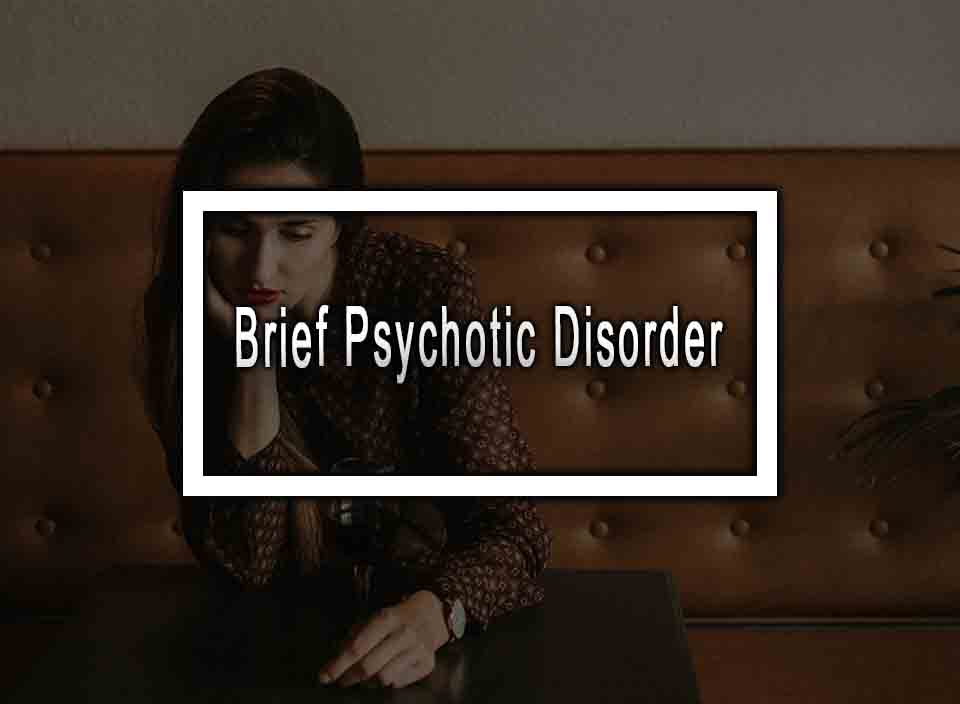Imagine suddenly feeling detached from reality, experiencing hallucinations, delusions, and an inability to think clearly. Such experiences can be scary and confusing, but they may indicate a mental health condition known as brief psychotic disorder (BPD). BPD is a rare condition that causes temporary psychosis, which can last for a few days to a month. This article will explore the causes, symptoms, treatment, and prognosis of BPD.
Table of Contents
ToggleCauses of Brief Psychotic Disorder
The exact cause of BPD is unknown, but several factors can increase the risk of developing the condition. Some of these factors include:
- Stress: Extreme stress, such as trauma or a major life change, can trigger BPD.
- Genetics: BPD can run in families, suggesting that genetics may play a role in the development of the condition.
- Brain chemistry: Disruptions in the brain chemicals that regulate mood and perception can contribute to the development of BPD.
- Substance abuse: BPD can be triggered or exacerbated by substance abuse, such as alcohol or drugs.
Symptoms of Brief Psychotic Disorder
BPD is characterized by a sudden onset of psychotic symptoms that can last for a few days to a month. The symptoms of BPD can vary depending on the individual and the severity of the condition. Some common symptoms of BPD include:
- Delusions: A belief in something that is not true, such as a conviction that one is being followed or spied on.
- Hallucinations: Seeing or hearing things that are not there.
- Disorganized thinking: Difficulty with organizing thoughts, confusion, and a lack of coherence in speech.
- Disorganized behavior: Behaviors that are bizarre or inappropriate, such as laughing at inappropriate times.
- Negative symptoms: Reduced emotional expression, lack of motivation, and social withdrawal.
Diagnosis of Brief Psychotic Disorder
A diagnosis of BPD is made based on the individual’s symptoms and medical history. To diagnose BPD, a healthcare provider will perform a physical exam to rule out any underlying medical conditions that could be causing the symptoms. They may also order blood tests or brain imaging tests to assess brain function. A mental health evaluation is also necessary to assess the individual’s symptoms and determine if they meet the diagnostic criteria for BPD.
Treatment of Brief Psychotic Disorder
Treatment for BPD is aimed at managing symptoms, preventing relapse, and improving overall functioning. The most common form of treatment for BPD is medication, specifically antipsychotic medication, which can reduce symptoms such as delusions and hallucinations. Other medications, such as mood stabilizers and antidepressants, may also be prescribed to manage symptoms of anxiety and depression that may be associated with BPD.
In addition to medication, psychotherapy is also a crucial component of the treatment of BPD. Cognitive-behavioral therapy (CBT) and family therapy can help individuals manage their symptoms and learn coping skills to prevent relapse. Supportive therapy, such as one-on-one counseling or group therapy, can also help individuals manage their symptoms and improve their overall functioning.
Prognosis of Brief Psychotic Disorder
The prognosis of BPD is generally positive, as most individuals with the condition recover fully within a few weeks to a month. However, some individuals may experience chronic symptoms and relapses, which may require ongoing treatment and support. It is also important for individuals with BPD to learn coping skills that can help them manage their symptoms and prevent relapse.
Conclusion
Brief psychotic disorder is a rare mental health condition characterized by a sudden onset of psychotic symptoms. Although the exact cause of BPD is unknown, several risk factors, including stress, genetics, and brain chemistry, can increase the likelihood of developing the condition. Treatment for BPD typically includes medication and psychotherapy, which can help individuals manage their symptoms, prevent relapse, and improve overall functioning. With proper treatment and support, the prognosis for individuals with BPD is generally positive, and most people recover fully within a few weeks to a month.
Brief Psychotic Disorder FAQ
Here are the most common questions about brief psychotic disorders.
Is a brief psychotic disorder treatable?
Yes, a brief psychotic disorder is treatable. Treatment may include antipsychotic medication, therapy, and supportive care.
How long does a brief psychotic disorder last?
Symptoms of brief psychotic disorder typically last for less than one month, but can last up to three months.
Can a brief psychotic disorder occur more than once?
Yes, a brief psychotic disorder can occur more than once, but it is rare.
Is brief psychotic disorder the same as schizophrenia?
No, the brief psychotic disorder is not the same as schizophrenia. It is a distinct mental disorder that is characterized by a sudden and brief onset of psychotic symptoms. Schizophrenia, on the other hand, is a chronic mental disorder in which the symptoms persist for a longer period of time.
Who is at risk of developing a brief psychotic disorder?
Anyone can develop a brief psychotic disorder, but it is more common in individuals who have a history of trauma, stress, or a family history of mental illness. It is also more likely to occur in young adults and in individuals who have a history of substance abuse or a medical illness that affects the brain.
More like this: Delusional Disorder: Symptoms And Treatment












